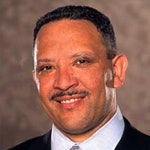Although African Americans still believe in many of the traditional paths for improving their situation, such as educational achievement and civic engagement, they are not experiencing the outcomes for which they had hoped. This has resulted in a population struggling with the toll of racism and concerned for its future, according to The Pulse of Black America, a new poll from the National Urban League (NUL).
The poll surveyed nearly 1700 people, more than 80% Black or people of color, this past March.
According to NUL president and CEO Mark Morial, it is the “best, most comprehensive, authentic, and legitimate picture of where Black America is today. If [it] points to a grim picture, it’s because this is what Black America is telling us.”  Marc Morial
Marc Morial
Morial’s description is accurate. Racism was found to be having a greater effect on the mental health of Black people now than in the summer of 2020. The effect was particularly pronounced on the young, with more than two out of five Black Millennials or Gen Z-ers saying that racism affected their mental health at least once a month. Additionally, African Americans expressed more worry than whites about every economic issue polled, from the rising cost of living to the possibility of losing their home, and reported concerns about discrimination in healthcare, government, and education.
The poll found that education has not paid off for African Americans in the way that it had been expected to. Although African Americans attended college at a comparable rate to whites, they were less likely to have a higher income or a white collar professional or managerial job. One in three Black college graduates were unsure when or if they would be able to pay off their student loans. And 74% of HBCU students were concerned about being looked down upon for not attending a predominantly white institution.
“It has long been suggested that education is the great equalizer. It is not an equalizer by itself,” said Morial.
However, the poll showed that African Americans still believe strongly in the value of schooling. Over half agreed that that the lack of access to affordable, quality education is an important barrier to true equality. Roughly three-quarters said that expanding investment in public education, including free college, would be an economic equalizer, and a similar percentage said the same about student loan debt relief.
“I think Black America believes in their ability to get ahead,” said Shannon-Janeen Currie, a vice president of the Benenson Strategy Group, which conducted the poll. “They’re self-reliant, and they’re resilient, and they take no pride in handouts, but they do acknowledge that they need a hand up to correct decades of systemic racism and wealth inequality.”
African Americans also still believe in the power of the government to make a difference. Over three-quarters agreed that the government can address economic opportunity, social and racial justice, and police violence. 70% agreed that voting is critical. However, African Americans were less happy with the performance of politicians, with around half saying that local and federal officials don’t fight for issues that they care about, and over a third agreeing that neither Democrats nor Republicans care about Black issues.
Most also found voting to be unfairly challenging: fewer than half of Black Americans reported that voting was easy, 25% lower than the share of whites who thought that. And 3 out of 5 Black Americans believe that the government is doing more to limit voting rights than to protect them.
The poll also found that African Americans have very different attitudes about the possibility of success in America when compared to whites. 71% of white people said that racial wealth inequality can be overcome, but that it is up to the individual to change their circumstances. 57% of Black people, on the other hand, felt that wealth inequality is a cycle that generates never-ending disparity, no matter how hard individuals tend to work.
There was some unity, however, when it came to potential solutions for economic inequity. Around three quarters of both whites and African Americans agreed that eliminating predatory and discriminatory lending practices by banks and increasing access to capital for small minority and women owned businesses would help to address the problem. However, white support for increasing the minimum wage to $15 an hour was roughly 15% lower.
Overall, The Pulse of Black America poll paints a portrait of today’s African American viewpoint that is nuanced, but at times, unmistakably bleak.
“There’s a toll that every Black American has endured both mentally and financially,” said Currie. “It’s almost like it’s inherited within the Black community.”
But Currie remains hopeful.
“There’s a real person that’s worried about these disparities,” she said. “And maybe if these things are humanized, they’ll be more likely to take action on them.”















